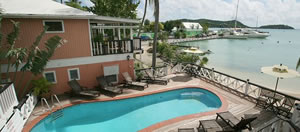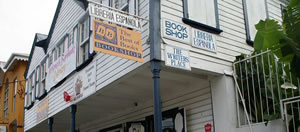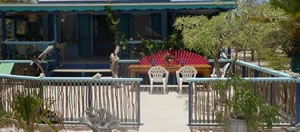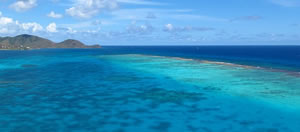Barbados
Barbados is the most easterly island of the Caribbean island chain, located at 13° 10' N and 59° 32' W. The closest neighbouring islands are St. Vincent & the Grenadines and St. Lucia which are located to the west, while Trinidad and Tobago is located to the south. Barbados is located approximately 2,573km (1,600 miles) southeast of Miami, Florida.
The island is 430 sq. km (166 sq. miles), measures 33.79km (21 miles) long by 22.53km (14 miles) wide and is 2.5 times the size of Washington, D.C. Divided into eleven parishes, the capital city, Bridgetown, is located in St. Michael.
Barbados is largely made up of coral formation, with a terrain that is generally flat, except for the Scotland district in the North-east, where the terrain is hilly and rugged.
Bounded by the Caribbean Sea and the Atlantic Ocean, Barbados enjoys north-east trade winds all year which help to keep the island cool, so that extremes of heat are exceptional.
Climate
The climate is warm throughout the year, with a dry season from December to May, and a rainy season between June and November. The average temperature is 28 degrees Celsius (82.4 degrees Fahrenheit), and seldom varies by more than 5 degrees in the day, or 10 degrees at night.
Time Zone
Barbados falls within the Atlantic time zone. The standard time is Greenwich Mean Time minus four hours. Barbados has no daylight saving time.
Government
Barbados has been a sovereign independent state within the Commonwealth since 1966. The first elections based on universal adult suffrage took place in 1951. The government of Barbados is a parliamentary democracy where the political party with the greatest representation in parliament forms the government.
The leader of government is the Prime Minister, who selects a cabinet from party members in the legislature. Since 1955, Barbados has had two major political parties - the Barbados Labour Party and the Democratic Labour Party. Both parties are fundamentally committed to democracy, the rule of law and a free-market economy as the basis of political stability, social and economic prosperity.
History
Barbados was first inhabited by the Arawak Indians who migrated from Venezuela. It is believed that they inhabited the island from 350-400 BC. When the British arrived in 1625 they found the island uninhabited and they claimed it in the name of King James I. This first ship, which arrived on May 14, was captained by John Powell. Two years later on February 17, 1627 the first settlement landed on the West coast of the island near what is now Holetown (formerly Jamestown).
The early settlers cultivated tobacco and cotton and relied on the labour of indentured servants. By the 1630s the early settlers switched to sugar production and this diversification proved to be economically profitable. To meet the increased labour demands of sugar production, slaves were brought from Africa using the triangular slave trade to work on the sugar plantations. The arrival of black slaves resulted in a 90% black population, who provided plantation labour until their emancipation in 1838.
Barbados remained a British colony until autonomy was granted in 1961. In 1966, Barbados gained full independence from Britain. However, ties to the British monarchy are still maintained through the Governor General.
The first leader of Barbados as a free nation was the Right Excellent Errol Walton Barrow. In the February 2013 general elections, the Democratic Labour Party won 16 out of 30 seats. The Honourable Freundel J. Stuart, M.P. is currently prime minister.
Economy
When Barbados became independent in 1966, the economy was primarily agricultural. Not only was it agricultural, it was also a mono-crop economy with as much as 60% of GDP directly attributable to the sugar industry. Ever since that time, it has been a deliberate policy of successive governments to develop a more diversified economy, and to facilitate sustainable, economic momentum on the island.
The four main sectors contributing to the Gross Domestic Product (GDP) of the island during 2014 were finance and business $2,304.7 million, government services $856.3 million, transport, storage and communications $853.2 million and hotel and restaurant $1,061.4 million. The other sectors contributing to GDP include wholesale and retail $761.1 million, manufacturing $312.2 million, personal and other services $568.3 million, construction $288.2 million, electricity, gas and water $207 million, non-sugar agriculture $118.7 million, mining and quarrying $18.6 million, and sugar $7.1 million.






























